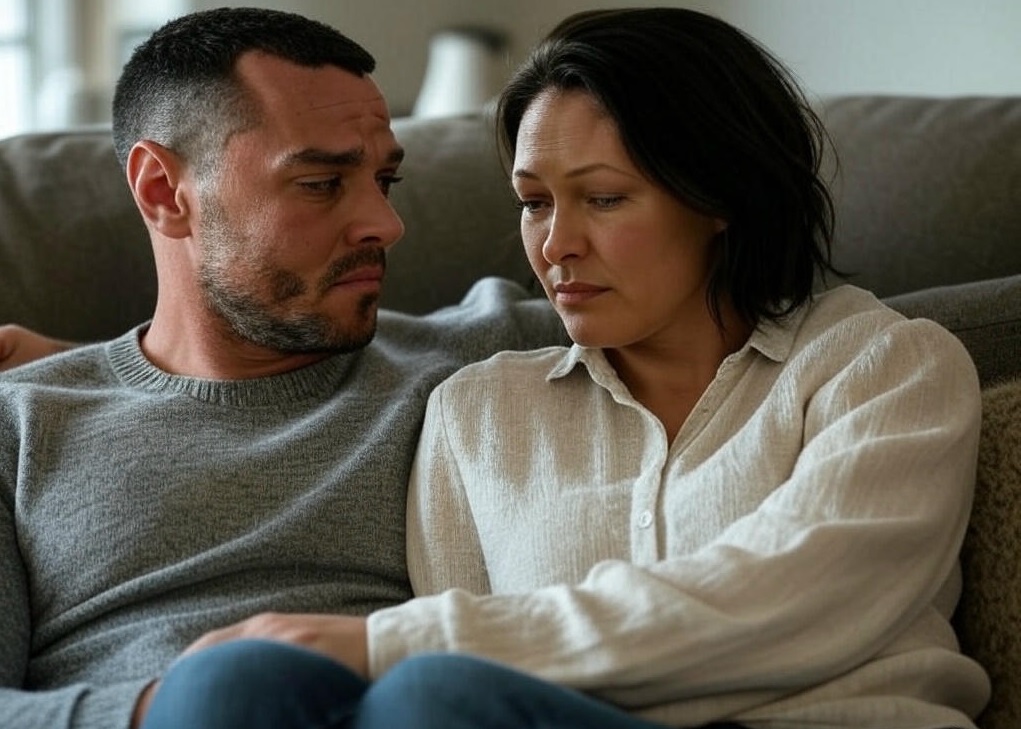Matt and Emma Willis’ Heartbreak: How Digital Screens Drove a Wedge Between Them and Their Eldest Child
In an era where glowing screens are as common as breakfast cereal, the story of Matt and Emma Willis resonates deeply with parents worldwide. The celebrity couple—Emma, a cherished TV presenter, and Matt, the dynamic frontman of Busted—have opened their hearts in a raw and emotional confession. They feel they’ve “lost” their eldest daughter, Isabelle, to the magnetic pull of digital devices, a parenting choice they now bitterly regret. Their journey, explored in the Channel 4 documentary Swiped: The School That Banned Screens, casts a spotlight on a modern dilemma: how to raise children in a tech-driven world without sacrificing precious family connections. This isn’t just a celebrity tale; it’s a universal call to action for anyone navigating parenthood in the digital age.

Matt and Emma, parents to Isabelle (15), Ace (13), and Trixie (8), have always placed family at the heart of their lives. Their social media feeds often showcase a tight-knit clan, with glimpses of seaside adventures and cozy homeschooling moments. Yet, beneath this warm exterior lies a struggle that strikes a chord with many. The couple’s decision to introduce devices to their two older children, particularly Isabelle, has become what Matt calls the “biggest disruptor” in their home. “Our daughter was 11 when she got her first device,” Matt shared in a heartfelt moment. “I feel like she’s slipping away to it. I miss her.” His words carry the ache of a father yearning for a bond that feels increasingly out of reach.
Emma mirrors this pain with a blend of regret and openness. Initially, the couple was cautious, delaying access to social media platforms. But when Isabelle, at 14, pleaded for Snapchat, they gave in. “She’s glued to it constantly,” Emma admitted. “There are moments when I truly feel like I’ve lost them. I wish I’d never allowed those screens in our home.” Her words echo the quiet fears of parents watching their children vanish into a digital world, where apps like Snapchat and TikTok often overshadow family time. Emma’s anxiety runs deep: she feels she’s “failing as a parent” because she can’t fully oversee what her children encounter online.
This unease is far from baseless. While filming Swiped, Matt and Emma posed as 13-year-olds on TikTok to investigate the content accessible to young users. What they uncovered was unsettling. Within moments, the platform’s algorithm served up troubling videos—far removed from the lighthearted trends they anticipated. Emma described a jarring realization: “They might be watching something with earbuds in, and you think, ‘Oh, they’re just playing a game.’ But they could be listening to something deeply disturbing.” This gap between what parents see and what children experience online is a source of constant worry for Emma, amplifying her sense of disconnection.
The documentary, which began airing on December 11, 2024, includes an experiment at The Stanway School in Colchester, where Year 8 students were challenged to forgo their devices for three weeks. The outcomes were striking. Students reported sharper focus, better rest, and stronger ties with friends and family. For Matt and Emma, this project was more than a professional endeavor; it was deeply personal. They hoped it would ignite a wider discussion about technology’s place in children’s lives and inspire shifts in their own home. “We want this to spark change,” Emma said. “We all want our kids to engage with technology at the right age, but in a way that keeps them safe.”
The Willis family’s story reflects broader concerns about the effects of screen time on young minds. Research highlights how excessive device use can shorten attention spans, heighten anxiety, and strain family relationships. Social media, in particular, can foster feelings of isolation and inadequacy among teens. For Isabelle, now 15, the pull of Snapchat has created a wall that her parents struggle to scale. Matt notes that the only tensions in their home arise from device-related disputes. “All our bickering comes from that,” he said. It’s a far cry from the playful, “fourth child” role Emma says Matt once played with their kids, a dynamic that once defined their vibrant family life.
Emma, who describes herself as the “quintessential mum” ensuring chores are done and rules are upheld, finds the unpredictability of the digital world daunting. She admits to dreading Isabelle’s reactions when screen time is questioned, a shift that underscores how technology can alter parent-child dynamics. This tension peaked during a revealing moment in the documentary. When Emma learned Matt hadn’t activated safety tools on their children’s devices, she was visibly upset. “I thought you’d handled it?” she asked, only for Matt to confess, “I didn’t know how.” This exchange lays bare the challenges even dedicated parents face in navigating the complexities of modern technology.
Yet, Matt and Emma’s story is not one of surrender but of growth and resolve. Their decision to share their regrets publicly reflects their dedication to their children and to driving change. They’ve begun tightening rules around screen use, including firm boundaries on platforms like TikTok, a choice shaped by their undercover findings. They’re also pushing for systemic reforms, such as age-appropriate tech guidelines and stronger online safety measures.
Their experience resonates because it’s far from unique. Parents everywhere wrestle with the same questions: When is the right age for a device? How much screen time is too much? How do you shield your child from the internet’s shadows while fostering their independence? Matt and Emma don’t pretend to have all the solutions, but their candor is a powerful catalyst. Their story reminds parents that navigating the digital age requires vigilance, open dialogue, and the humility to admit mistakes.
For Matt and Emma, the sting of feeling distant from Isabelle is softened by their unwavering love and determination. They treasure moments when their family feels united—whether it’s a chilly beach outing or a rare device-free evening. These flashes of connection fuel their hope that they can mend what feels fractured. As Emma reflected, parenting is “tough, but the best kind of tough.” Matt agrees, calling their children “the best version of both of us.” Their words are a touching reminder that love endures, even amid regret.
As Swiped: The School That Banned Screens continues to spark dialogue, Matt and Emma Willis have offered parents a profound gift: permission to rethink technology’s role in their homes. Their heartbreak is a rallying cry, urging families to prioritize real-world bonds over digital distractions. Whether it’s enforcing stricter screen limits, fostering open talks about online safety, or simply unplugging for a family game night, their story inspires actionable steps toward stronger connections. In a world where screens often reign, that’s a legacy worth embracing.





